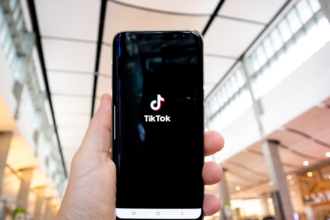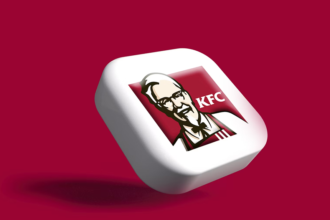Following an alarming E. coli outbreak, McDonald’s temporarily removed fresh, slivered onions and quarter-pounders from the menu at about one-fifth of its U.S. outlets. The Centers for Disease Control and Prevention (CDC) have recorded 49 cases of illness reported in 10 states, with one confirmed death and ten persons hospitalized.
Where Are the Concentrations of Cases Found in Colorado and Nebraska?
Western and Midwest states account for most of the documented E. coli cases connected to a bacterium capable of causing major gastrointestinal problems. “Of the 26 persons sickened in Colorado, one older adult has died; this marks the first death linked to the outbreak,” the CDC said on Tuesday.
The CDC reported in a worrisome development that a youngster infected with hemolytic uremic syndrome (HUS), a severe illness that can cause kidney failure, is now under hospitalization. September 27 marked the first verified outbreak case; McDonald’s only got word of the health issues from authorities late last week.
What Menu Changes Have Been Made, and Which Stores Are Affected?
Twelve people contacted as of Wednesday claimed to have taken a quarter pounder before becoming sick. The fast-food chain’s decision to cut out the patties and onions impacts stores in Colorado, Kansas, Utah, Wyoming, and areas of Idaho, Iowa, Missouri, Montana, Nebraska, Nevada, New Mexico, and Oklahoma. Notably, this choice does not affect other hamburger products.
How Are Other Chains Responding to the Outbreak?
Burger King revealed on Thursday that perhaps 5% of its outlets get onions from a supplier possibly linked to the epidemic. The chain has aggressively disposed of the impacted produce even though there have not been any documented contaminations or illnesses at those sites.
The likelihood that the contamination originates from onions, a basic topping for McDonald’s quarter-pounders, is currently under investigation. The FDA and the CDC said they have not excluded beef patties as a possible outbreak source.
How Is McDonald's Responding, and What Are the Supply Chain Details?
McDonald’s has accepted the findings of health authorities and said that its burgers are cooked to 175 degrees, higher than the 160 degrees required to eradicate E. coli germs. The company underlined that the incidents included purchases from several stores; hence, it is doubtful that food preparation methods are responsible.
McDonald’s said, “While the stores involved used different suppliers for the beef patties, they shared a single supplier of onions—California-based Taylor Farms, one of the biggest vegetable processors in the world.” Given the circumstances, Taylor Farms has ordered a recall of some batches of onions out of great caution.
Taylor Farms said, “We conducted tests on ‘raw and finished’ onion products and found no traces of E. coli.” Yum! Brands, the parent firm of Taco Bell, Pizza Hut, and KFC, has said it is closely watching the epidemic and has removed fresh onions from a few outlets in the United States. They refused to reveal the number of sites impacted.
What Are the Symptoms of E. Coli Infection?
E. coli is a broad spectrum of bacteria that lives in the intestines of humans and animals. Although certain strains cause poisons that might seriously affect human health, many are benign. An E. coli infection causes stomach cramps, severe and occasionally bloody diarrhea, vomiting, and fever. Infections can turn into more severe problems like renal failure. Usually, symptoms show up three to nine days after eating infected food.
How Is the Outbreak Impacting McDonald's and Consumer Behavior?
McDonald’s shares dropped by 7% following the public declaration of the epidemic but have lately shown some recovery. The massive burger company said it was early to evaluate possible sales loss. They said they were confident they had eliminated the issue from their supplier chain and intended to bring quarter-pounders back into the impacted states in the following weeks.
Nevertheless, this episode coincides with a difficult period for McDonald’s since consumer fast food consumption has already dropped. This shift in consumer behaviour has driven McDonald’s and other companies to rely mostly on discounts and marketing techniques.
What Legal Action Has Been Initiated in Response to the Outbreak?
Eric Stelly, who became sick two days after a meal at a restaurant in Greeley, Colorado, has launched the first lawsuit against McDonald’s in reaction to the epidemic. Stelly tested positive for E. coli after seeking emergency medical assistance, and health officials verified that his infection was connected to the continuing outbreak.
His attorney said, “We will ensure that McDonald’s and its suppliers permanently fix the health violations that caused the food to become contaminated with E. coli. We will also ensure that all of the victims are fully compensated for their losses.” McDonald’s has headquarters in Chicago, where the complaint has been filed.








